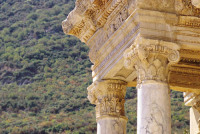Tonight -- Live White Horse Inn Taping @ Biola University
 Friday, February 12, 2010 at 09:20AM
Friday, February 12, 2010 at 09:20AM 
White Horse Inn is Taping in Front of a Live Audience
Here's the scoop:
Greetings Friends,
Have you ever wanted to join the conversation? On Friday, February 12, 2010 White Horse Inn is taping in front of a live audience and you are invited.
We trust you are benefiting from the 2010 series "Recovering Scripture" and we hope to see you soon.
White Horse Inn Live Taping in La Mirada
When - Friday, February 12, 2010 at 7:30 p.m. (Seating begins at 7:00 p.m. and is first come first serve).
Who - Mike Horton, Ken Jones, Kim Riddlebarger, Rod Rosenbladt and you.
What - Live taping and Q&A regarding the topic of "Contending for the Faith" – How did the apostles contend for the faith in the book of Acts? Did they appeal to the practical benefits of living life Jesus’ way? Did they share their testimonies or inner experiences? Did they encourage bland faith? On this special live edition of White Horse Inn, the hosts will walk through the apologetic sermons in the book of Acts in order to discover the proper way to both defend, and contend for the faith once delivered to the saints.
Where/Sponsor – Calvary Chapel at Biola University sponsored by Associated Students of Religious & Academic Relations – 13800 Biola Ave. La Mirada, CA 90639 (562.903.6000)
Registration - no registration required (free event)













